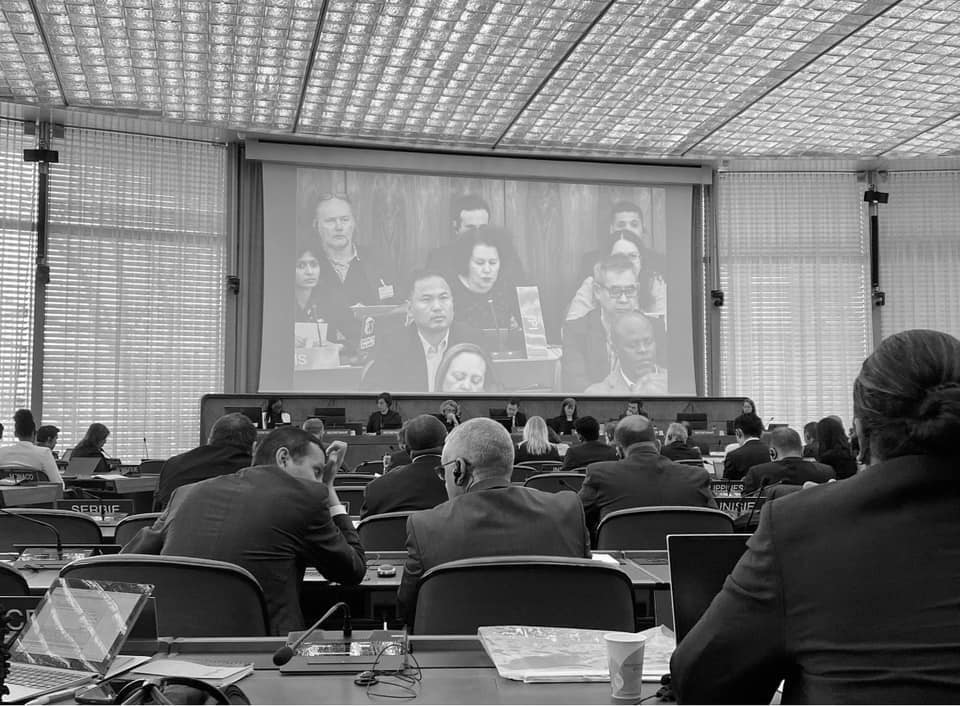Success of the 43rd Session of the SCCR
The 43rd session of the WIPO Standing Committee on Copyright and Related Rights (hereinafter SCCR) made substantial progress on the issues advocated by the A2K Coalition (Access to Knowledge Coalition), which IPI is a member of. This year’s session was the most productive on the issues of exceptions and limitations. James Love (Knowledge Ecology International), a long-time observer at WIPO, described the outcome and the impact of the public interest community as the strongest since the conclusion of the Marrakech Treaty, which brought global copyright exceptions for the benefit of the blind and visually impaired.
Among the highlights of the session were the adoption of the Programe on exceptions and limitations, progress on the exceptions and limitations clause in the draft for the Broadcasting Treaty and the revival of the second meeting of the SCCR. This progress was partly driven by changes in the representation of Brazil, Chile, Colombia and Argentina, as well as by continued expertise and leadership within the African Group.
Exceptions and Limitations: Programe (Proposal by the African Group for a Draft Work Programe on Exceptions and Limitations)
The SCCR adopted the new Programe on exceptions and limitations proposed by the African Group.
According to the A2K Coalition, the Program proposed by the African Group establishes a solid framework for building on the work on copyright exceptions and limitations that has been done in the past by the SCCR, as well as for further discussion on exceptions and limitations for libraries, archives, educational and research institutions, and for making accessible to persons with disabilities. As dr. Maja Bogataj Jančič stated on behalf of IPI: “Exceptions and limitations are not tools to take sth. away, but a way forward to design a balanced system that will work for common good. The African proposal shows the right way forward”.
The Programe calls for the SCCR focus future work on “priority issues” including:
- to promote the adaptation of exceptions to ensure that laws at the national level enable the preservation activities of libraries, archives, and museums, including the use of preserved materials;
- to promote the adaptation of exceptions to the online environment, such as by permitting teaching, learning and research through digital and online tools; and
- to review implementation of the Marrakesh Treaty and how to ensure that people with other disabilities (also covered by the Convention on the Rights of Persons with Disabilities) can benefit from similar protections, in particular in order to benefit from new technologies.
The Toolkit on Preservation was also presented at the session and was welcomed by representatives of libraries, archives and museums as it presents the possibility of an exception for preservation, including more open and flexible models for national implementation. One of the advantages of the toolkit is that it has been prepared by external experts and thus represents an objective analysis of options. Although the toolkit was strongly criticized at the meeting by the International Publishers Association, this probably indicates its usefulness to users.
Exceptions and Limitations: the Broadcasting Treaty
An improved provision on exceptions and limitations was presented at the session, but not welcomed by Member States and observers. The Chair agreed to reword the provision to make it clear that the exceptions are listed only by way of example and that this allows Member States to freely adopt additional exceptions. As dr. Maja Bogataj Jančič stated on behalf of IPI: “if it is a joint and agreed decision that such new rights are necessary to achieve sustainable development such new rights shall and must be balanced with harmonized and mandatory copyright exceptions and limitations to achieve common good and common progress”. In this spirit, the A2K Coalition has proposed a stronger model that would ensure, through mandatory exceptions, that all copyright exceptions are extended to potential new and existing broadcasting rights.
Second Meeting of the SCCR
The SCCR agreed to insist on a second session this year, which will be shortened to 3 days, starting on November 6, 2023. This will be the next opportunity to form working groups on exemptions and restrictions and to discuss the next steps following the adopted Programe.
The Grand Board of the European Union Intellectual Property Office (EUIPO) finally ruled that the figurative sign ‘COVIDIOT’ cannot be registered as an EU trademark.
The 4th Open Knowledge Day took place on Tuesday 17 October 2023, with an accompanying workshop on 18 October 2023. This year it was organised by the Open Data and Intellectual Property Institute (ODIPI) and supported by Knowledge Rights 21 (KR21).
We invite you to the fourth Open Knowledge Day and the workshop, which will take place this year within the framework of the programme and with the support of Knowledge Rights 21. The event will bring together experts from different European countries to discuss two topics: the first part will deal with the legal basis for data analytics, which is a key part of machine learning and related artificial intelligence, and the general exception for research. In the second part, open science in theory and practice will be presented both in Slovenia and in some Western Balkan countries. Representatives of research and educational institutions from Slovenia and the Western Balkan countries, as well as interested members of the public, are invited to attend.
Dr. Maja Bogataj Jančič, a renowned expert in copyright law, has joined the Berkman Klein Center for Internet & Society at Harvard University, where she will serve as an affiliate researcher for the next two years.





